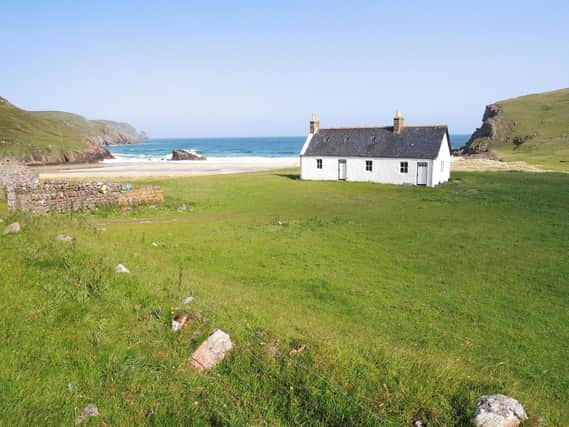Coronavirus: Scotland's mountain bothies closed down to those seeking refuge in hills


The Mountain Bothies Association has shut all its 86 bothies in Scotland until further notice.
The association said people had been using bothies – and still planned to do so – despite social distancing rules set out by both the UK and Scottish Government.
Advertisement
Hide AdAdvertisement
Hide AdA statement said: “In line with Government and medical advice about social distancing, all MBA maintained bothies have been closed to visitors until further notice.”
Bothies, basic shelters which usually once served as accommodation for gamekeepers and other estate workers, can often be occupied by several different groups of visitors at once.
Neil Stewart, spokesman for the association, added that posts on social media indicated that people were still seeking refuge in the shelters, most of which are in hard to reach and isolated locations.
He added: “Going on what we are seeing on social media, people have been continuing to go to bothies so we are distributing our message as widely as possible.
“We don’t know how many people have been going to bothies since the outbreak as we have no way of knowing but it is clear people have been using them or are intending to use them.
“The message is clear – you can be outside but only close to home.”
Meanwhile, Oban Mountain Resecue Team reported a “busy weekend” as people headed to the hills with two rescues launched after walkers got into difficulties.
The team earlier appealed for "restraint” among those considering going hillwalking.
Advertisement
Hide AdAdvertisement
Hide AdIt said both weekend incidents had been minor but still involved its crews, helicopters, the police and ambulance services.
A statement posted on social media from the rescue team said: “Doing our best to do the right thing during the current emergency is never going to be easy.
“But we all need to consider the potential repercussions of our actions.
“So take not of the advice and keep fit locally, the hills will still be there once this thing is over.”
Mountaineering Scotland also recommended that people stay within their local area.
It said that while outdoor recreaton had “substantial benefits” to both physical and mental health, a number of considerations now had to be made.
A statement said: “Against the benefit of taking cash to rural economies there is the risk of bringing infection into a rural community with limited medical resources.
“There is also the possibility of having an accident either while travelling to the hills or once there.
Advertisement
Hide AdAdvertisement
Hide Ad“As well as using up pressurised NHS resources, those dealing with accidents are put at increased risk of infection.”
The organisation said there had been “significant activity” on the hills in certain areas over the weekend.
Teams were equipped with PPE to defend against COVID-19 but this now had to be prioritised for NHS staff.
A statement added: “This is putting many team members in a genuine dilemma. They are all volunteers. Should they do what they always do and respond, putting loved ones at home at greater risk?
“Our NHS services in the mountain regins are already stretched, don’t add to their load.
“The mountains will be there next year and the year after, lets make sure we all are.”
